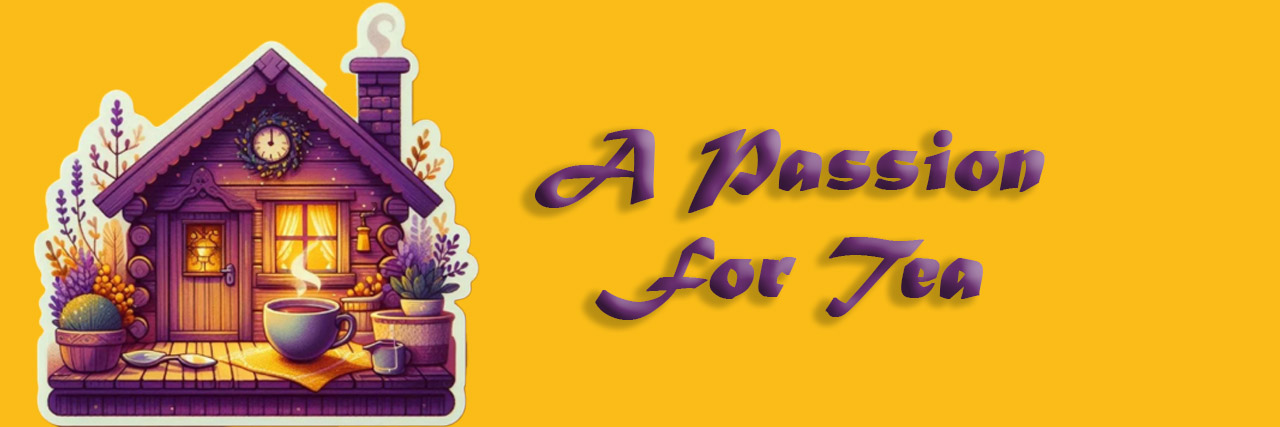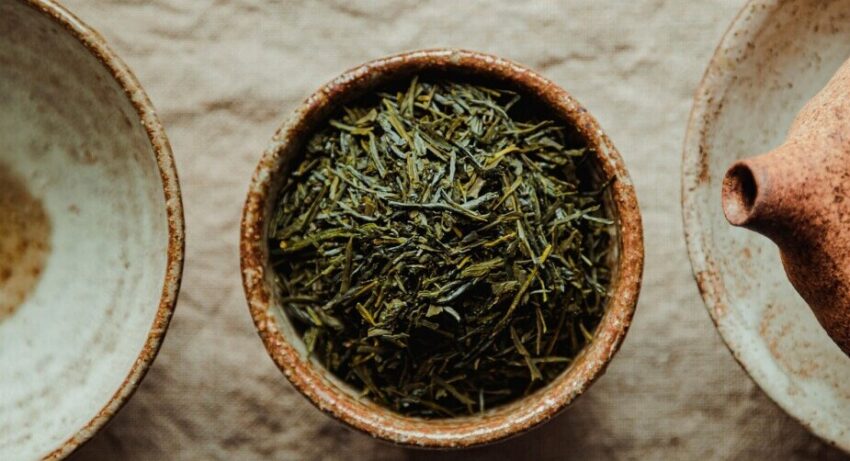 Medicinal teas, those trusty home brews that have been more than just a hot beverage, have a rich tapestry woven through the history of nearly every culture in our world. These aren’t just your average cuppa. These infusions made from various parts of plants have been sipped as remedies long before they became part of the modern café culture.
Medicinal teas, those trusty home brews that have been more than just a hot beverage, have a rich tapestry woven through the history of nearly every culture in our world. These aren’t just your average cuppa. These infusions made from various parts of plants have been sipped as remedies long before they became part of the modern café culture.
 Let’s hop on a time-traveling journey and explore how different cultures have brewed concoctions that were seen as a cure-all in one way or another. From ancient potions to modern-day staples, medicinal teas have become both a comfort drink and a health go-to.
Let’s hop on a time-traveling journey and explore how different cultures have brewed concoctions that were seen as a cure-all in one way or another. From ancient potions to modern-day staples, medicinal teas have become both a comfort drink and a health go-to.
Across continents, from the dense forests of China to the vast plains of Africa, teas have always been an integral part of healing practices. They’ve been used as simple remedies for everyday ailments and complex rituals involving the spiritual and physical well-being of individuals.
The cool thing is that even as our world changes, this ancient love for healing teas continues, popping up as the go-to health booster in this wellness-obsessed era. It’s about finding a little piece of health wisdom in your teacup, passed down through generations, and still being enjoyed in our fast-paced world.
And it’s not just about the health benefits; it’s about connecting with history and tradition with every sip. when you begin learning about medicinal teas, you’re diving into a cultural journey that connects adventure, healing, and heritage that people of the past have cherished. So, next time you lift your mug or teacup, think of it as lifting a toast to thousands of years of knowledge and cultural richness that tea represents.
Ancient Brews: Early Uses of Tea in Traditional Medicine
Ever wondered how ancient folks managed their health issues without the local pharmacy? A good chunk of that was thanks to the wonders of herbal teas. Long before any modern medicine came into play, cultures around the world had already figured out the healing power of different plants, and tea was one of the easiest ways to get those benefits.
 Starting off in China, where medicinal tea practices are traced back thousands of years. In Traditional Chinese Medicine (TCM), teas made from herbs, flowers, and leaves like chrysanthemum and ginseng were staples. These weren’t just for any regular sniffles but tailored rituals to balance the body’s energies, something that’s still at the core of Chinese health practices today.
Starting off in China, where medicinal tea practices are traced back thousands of years. In Traditional Chinese Medicine (TCM), teas made from herbs, flowers, and leaves like chrysanthemum and ginseng were staples. These weren’t just for any regular sniffles but tailored rituals to balance the body’s energies, something that’s still at the core of Chinese health practices today.
Traveling over to India, Ayurveda was brewing an impressive array of teas aimed at health and healing. Ayurvedic teas crafted from spices such as turmeric and ginger weren’t just tasty—they were specifically selected to balance doshas, promote digestion, and invigorate the body.
And then there’s Egypt, where herbal infusions were certainly a big deal. Often drawn from the likes of mint and hibiscus, these mixes weren’t just popular because they tasted great. Egyptian healers believed these everyday drinks could help with anything from calming nerves to boosting our heart health.
Middle Eastern cultures were also in on this ancient tea movement. Teas made from ingredients like sage and cumin played a significant role in daily life and health; tackling problems which range from mild indigestion to more complex ailments.
These early uses of medicinal teas didn’t just reflect the medical practices of the ancient world, they also highlight mankind’s universal search for well-being that transcends time. By exploring these diverse historical backgrounds, it sheds light on how today’s popular medicinal teas borrow wisdom from hundreds of years of trial, error, and discovery.
The Healers’ Brew: Medicinal Teas In Cultural Rites and Rituals
Medicinal teas are more than just occasional remedies; in many cultures, they’ve been woven into the very fabric of spiritual and communal life. From healing ceremonies to everyday rituals, the role of these brews goes beyond the physical, by touching on insights, stories, and a collective history that shapes identities.
Take a look at indigenous North and South American tribes. Herbal teas were central in their spiritual practices. For those tribes, the connection to nature was vital, and creating a beverage out of local herbs was about healing both the mind and the body. Sacred ceremonies often involved teas meant to cleanse the spirit and promote harmony within the tribe.
 In Japan, tea isn’t just about drinking — it’s an act rich in culture and meaning. Traditional tea ceremonies involve more than just enjoying a brew. Every gesture during the ritual is steeped in precision, respect, and a pursuit of beauty and internal peace. in this ritual, the act of making and drinking tea transforms into a mindful dance that connects past traditions with a present experience.
In Japan, tea isn’t just about drinking — it’s an act rich in culture and meaning. Traditional tea ceremonies involve more than just enjoying a brew. Every gesture during the ritual is steeped in precision, respect, and a pursuit of beauty and internal peace. in this ritual, the act of making and drinking tea transforms into a mindful dance that connects past traditions with a present experience.
Across the African continent, medicinal teas have been packed with symbolism and cultural significance. These infusions often play a pivotal role in communal gatherings, storytelling, and celebrations of life, while using herbs and plants native to their lands, African cultures have created therapeutic brews that hold significant spiritual meaning, nurturing both the soul and the body.
The way medicinal teas are incorporated into cultural rites and rituals reveals much about humanity’s relationship with nature and our quest for holistic well-being. By embracing these practices, we should remember that we’re not only getting a cup of warmth but also a glimpse into diverse cultures that find healing, unity, and a sense of belonging in their communal teas.
Modern Revival: Teas in Contemporary Health and Wellness
Today, medicinal teas are more than just ancient traditions—they’re the new cool in the health and wellness scene. With everyone looking for natural ways to boost their health, these brews have become a staple in the wellness community, bridging age-old wisdom with modern-day living.

Many people are turning to teas like chamomile and peppermint, which bring more than comfort. Chamomile, for instance, is celebrated for its calming effects, and you’ll find it recommended for sleep troubles and stress relief. Peppermint tea, on the other hand, isn’t just refreshing—it’s often used to soothe stomach issues and help with digestion.
There is even scientific buzz supporting the benefits of these teas. Research has been digging into how their natural compounds can have real impacts on health. Antioxidants, flavonoids, or polyphenols found in various teas contribute to reducing inflammation, improving digestion, and boosting overall immunity.
This resurgence isn’t just random. There’s been a shift in our society towards holistic health approaches—things where people look beyond pills and quick fixes. Teas fit perfectly into this mindset. They’re simple, accessible, and they promote a back-to-basics approach that anyone can adopt into their routine.
Plus, it’s also about the self-care ritual that comes with tea drinking in today’s hectic lifestyle. People cherish that quiet moment of brewing a cup, inhaling the aroma, and taking that first calming sip. It’s wellness that’s both felt and savored, offering a mental break and a physical boost wrapped up in one cup.
Sourcing and Sustainability: The Future of Medicinal Teas
As the demand for medicinal teas climbs, how and where these ingredients are sourced becomes more important than ever. Ethical production and sustainable sourcing practices are the way forward, ensuring that these treasured teas are available for future generations.
 The world faces a mixture of environmental concerns and cultural shifts that affect traditional practices. Overharvesting and climate changes threaten the habitats of many medicinal plants, making using responsible cultivation essential to preserving these resources. By embracing sustainable methods, we protect both the plants and the indigenous knowledge that surrounds them.
The world faces a mixture of environmental concerns and cultural shifts that affect traditional practices. Overharvesting and climate changes threaten the habitats of many medicinal plants, making using responsible cultivation essential to preserving these resources. By embracing sustainable methods, we protect both the plants and the indigenous knowledge that surrounds them.
Being mindful of this means choosing teas that are certified by fair trade organizations or have organic labels. This support of responsible companies helps maintain the delicate balance between satisfying modern demands and preserving our world‘s ecological systems.
While it’s easy to grab a box of tea bags from the shelf, making a conscious choice to source your teas with care creates ripple effects. You’ll not only enjoy a brew crafted from the finest ingredients, but also contribute to a healthier planet.
Discovering the rich history and benefits of medicinal teas can lead to a deeper appreciation of what’s in your teacup. By valuing the journey from plant to brew, you’re getting more than just a wellness elixir; you’re part of a global movement that respects tradition and nurtures our world.
NOTE: I am not a doctor, just a person who loves tea and researches the benefits of drinking tea. You should always check with your doctor to ensure its ok. – Shirley
Also See Our Privacy Policy
Affiliate Links
This page may contain affiliate links, which, if clicked on and an item purchased I receive a small commission – Shirley
Comments
I enjoy getting comments and questions, please leave yours below – Shirley


Comments